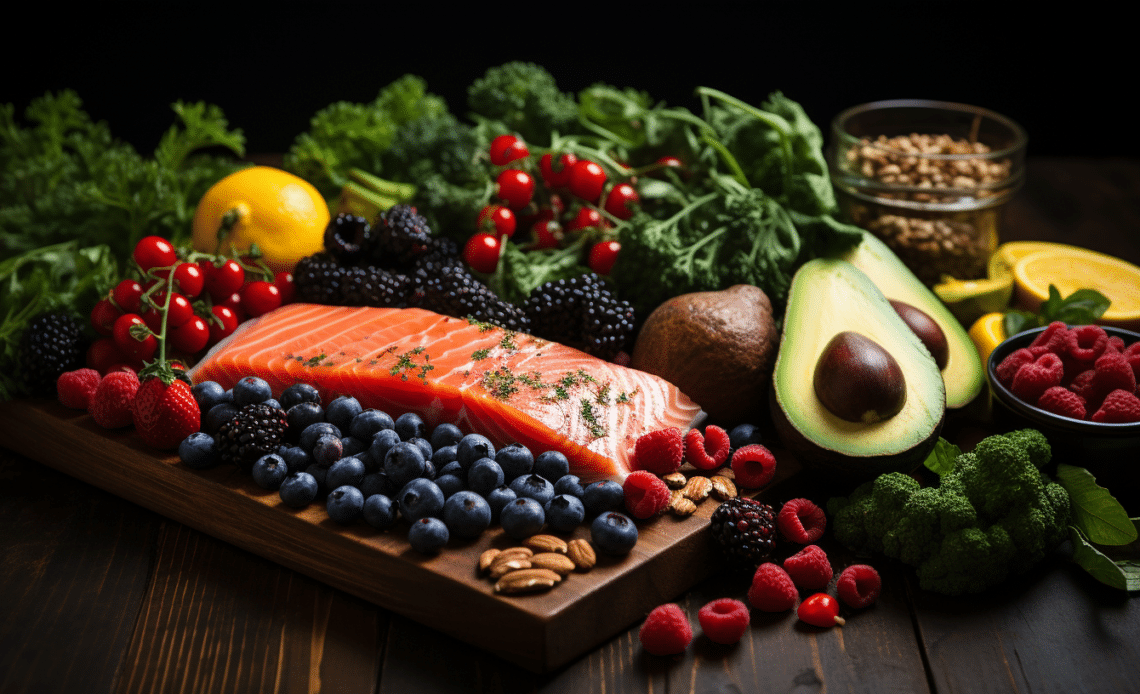
In our fast-paced modern world, stress has become an epidemic that impacts countless individuals. Prolonged and chronic stress can take a major toll on our physical and mental health. Fortunately, research has shown that making smart dietary choices can equip our bodies and minds to better cope with daily stressors. In this article, we will explore 10 science-backed stress-fighting foods to incorporate into your diet for enhanced wellness.
The Link Between Food, Stress, and Gut Health
The intimate connection between food, stress, and gut health highlights the significant impact dietary choices can have on managing stress levels and promoting overall wellness. Gut health is crucial to our overall well-being, as it is closely linked to the brain and nervous system. When we experience stress and anxiety can trigger the immune system to break down the gut lining, leading to chronic stress. In turn, a damaged gut can further stimulate the body’s stress response, causing more gut damage. However, incorporating probiotics into our diet can help reduce stress levels. Probiotics are beneficial bacteria that can promote a healthy gut microbiome, which is connected to mood, metabolism, immune function, digestion, hormones, inflammation, and gene expression. Probiotics can help reduce stress and improve overall well-being by promoting a healthy gut.
The Top Foods That Help Fight Stress And Anxiety
1. Fatty Fish
Fatty fish like salmon and mackerel are rich in omega-3 fatty acids, which are vital nutrients for optimal brain function. Multiple studies have found that getting enough omega-3s can help lower inflammation, protect against depression and anxiety, and improve mood. These healthy fats also help reduce the secretion of cortisol, the primary stress hormone. Aim to eat fatty fish at least twice a week.
2. Probiotic Foods
Your gut health is intrinsically tied to your brain health and stress levels. Probiotics help nourish a healthy gut microbiome, which research links to better stress resilience. Yogurt, kefir, sauerkraut, kimchi, and kombucha are excellent probiotic sources. A daily serving can help rebalance your gut flora to better withstand stressors.
3. Berries
Berries are nutritional powerhouses packed with antioxidants that fight inflammation, a key driver of many chronic diseases. Blueberries in particular may help reduce psychological stress, likely due to their high levels of antioxidants. Berries also have prebiotic fiber, supporting gut health for stress relief.
4. Nuts and Seeds
Nuts and seeds offer a satisfying crunch, heart-healthy fats, and stress-busting nutrients like magnesium, zinc, and selenium. Brazil nuts are an especially rich selenium source, which plays a role in stress adaptation. Enjoy a handful of your favorites as a snack, or sprinkle them onto yogurt or salads.
5. Leafy Greens
Leafy greens like spinach and kale contain folate, which helps regulate mood-controlling neurotransmitters like serotonin. Higher blood levels of folate have been associated with lower psychological distress. Greens also provide magnesium, potassium, and antioxidants. Add more to your plate or blend into smoothies.
6. Complex Carbs
Refined carbs can trigger spikes and crashes in blood sugar, worsening stress. Complex carbs like oats, quinoa, and sweet potatoes offer sustained energy. Oats also contain beta-glucan fiber that feeds good gut bacteria. Enjoy oatmeal for breakfast, or try quinoa in Buddha bowls for lunch.
7. Green Tea
Sipping green tea offers hydration and introduces L-theanine, an amino acid that boosts alpha brain waves to create a state of relaxed alertness (7). Animal studies also indicate it can buffer stress-related increases in blood pressure and cortisol. Brew a cup when you need an afternoon pick-me-up.
8. Dark Chocolate
Dark chocolate boasts mood-boosting benefits thanks to its natural polyphenols and antioxidants. Research shows just 30 grams daily (about 1 ounce) can lower stress hormone levels. Look for at least 70% cacao content. A small piece makes for a decadent post-dinner treat.
9. Turmeric
Curcumin, the active compound in turmeric, holds potent anti-inflammatory and antioxidant properties that help inhibit stress-induced changes in mood and cognition. Add turmeric to curries, stir-fries, soups, and smoothies. Curcumin supplements are another option, but consult your doctor first.
10. Chamomile Tea
Chamomile tea has been used for centuries as a natural stress reliever, and science backs up its calming properties. Apigenin, a flavonoid in chamomile, binds to certain receptors in the brain that decrease anxiety and initiate sleep. Sip a warm cup after a stressful day.
Conclusion
Dietary choices profoundly influence how our brains and bodies respond to and handle daily stressors. Incorporating more omega-3s, probiotics, antioxidants, vitamins, minerals, and natural compounds can nourish a brain and body resilient to stress. Introduce more of these science-backed foods into your eating pattern for enhanced wellbeing amidst the stresses of everyday life.
